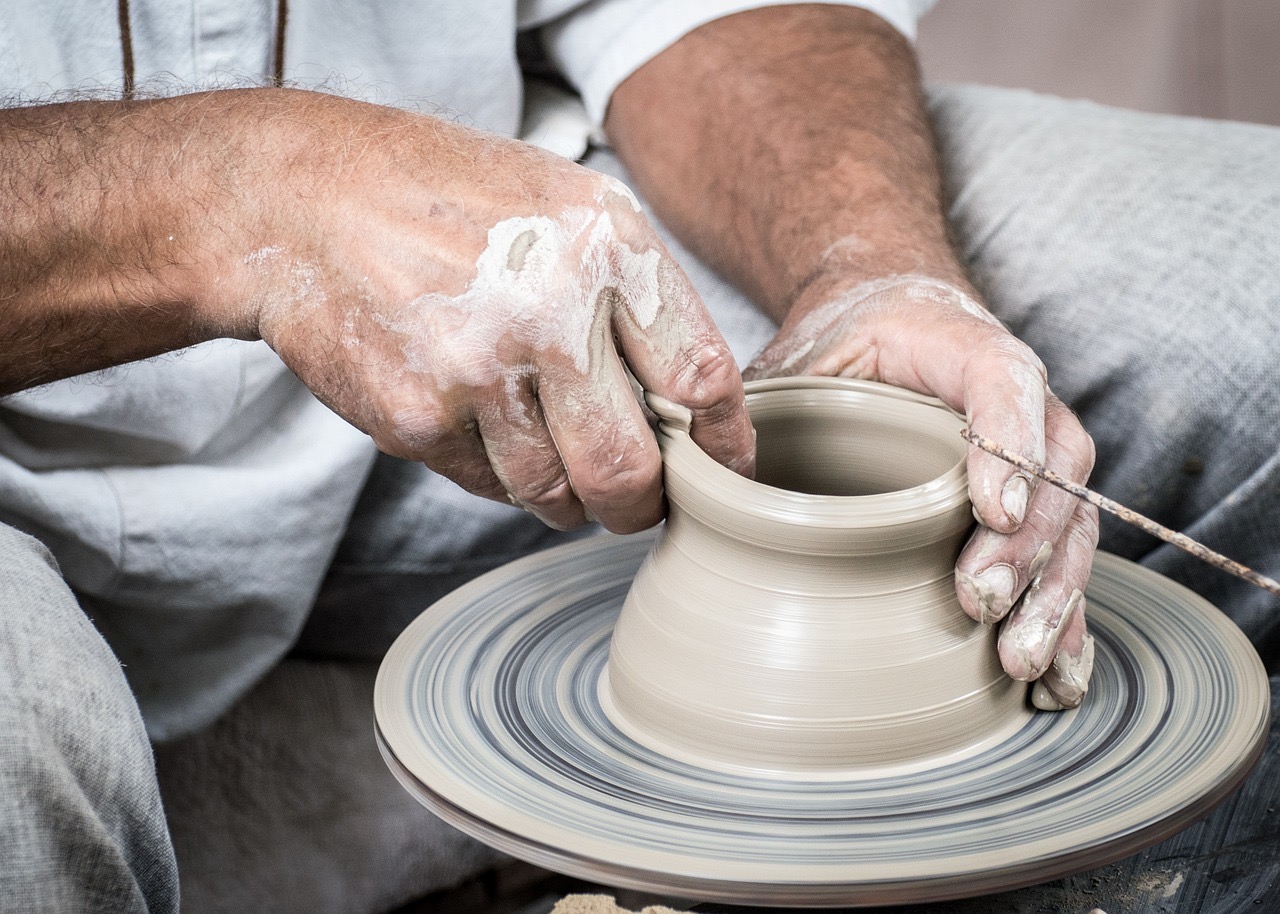Have your own way, Lord! Have your own way!
You are the potter, I am the clay.
Mould me and make me after your will,
While I am waiting, yielded and still.
So wrote Adelaide Pollard over one hundred years ago. She was distressed about not being able to go to Africa as a missionary. She attended a prayer meeting in 1902 and heard these words in a prayer: “It really doesn’t matter what you do with us, Lord – just have your way with our lives.”
Isn’t that such a wonderful thought? – we are willing to do whatever opens up for us as long as it is for the Lord. She went away and wrote the hymn that many love, based on the image found in Jeremiah and Isaiah about the potter moulding the clay.
“Yet you, Lord, are our Father. We are the clay, you are the potter; we are all the work of your hand.” (Isaiah 64:8 NIV)
This is similar to what Jesus prayed in the Garden of Gethsemane: “…not my will, but yours be done” (Luke 22:42). But how often do Christians have an ‘agenda’ – what they want done and how they want it to be done? We need to be willing to do for the Lord whatever we find that needs done, whether it was what we planned or not.
As this verse in Isaiah 64 comes in the middle of a section, it is always useful to have a look at the context – what comes before it and what comes after it. This chapter begins with a longing that God would do something like he had done in ancient times.
“Oh, that you would rend the heavens and come down, that the mountains would tremble before you! As when fire sets twigs ablaze and causes water to boil, come down to make your name known to your enemies and cause the nations to quake before you!” (Isaiah 64:1-2)
God was the only one who did such amazing things! Yet, despite what God had done, the people of Israel continued to sin against him, causing God to be angry with them. They had become so unclean due to sin that even the good things they did looked “like filthy rags” (Isaiah 64:6). The people had forsaken God and God had hidden himself from them and given them over to their sins.
What was it that was needed? They needed to realise that God was the potter and they were the clay! They needed to allow God to make them into a people who were willing to serve and obey him and not wander away to worship lifeless idols. The remainder of the chapter is a plea to God not to remember their sins forever and to be willing to hear their prayers.
“Do not be angry beyond measure, Lord; do not remember our sins for ever. Oh, look upon us we pray, for we are all your people.” (Isaiah 64:9)
The wonderful thing about the God we serve is that he is willing to forgive and remove our sins from us when we turn from them to follow him. That is a sentiment that Adelaide Pollard included in the hymn.
Have your own way, Lord! Have your own way!
Search me and try me, Saviour today!
Wash me just now, Lord, wash me just now,
As in your presence humbly I bow.
Are we willing to submit to our Potter, humbly obeying him, as we strive to live our lives as his child?
Photo by LubosHouska from pixabay.com. Free for use.
Readings for next week: Isaiah 63-66; Mark 1-3
- This is My Father’s World - 2025-07-18
- God is righteous and just - 2025-07-11
- Is our delight in the law of the Lord? - 2025-07-04
